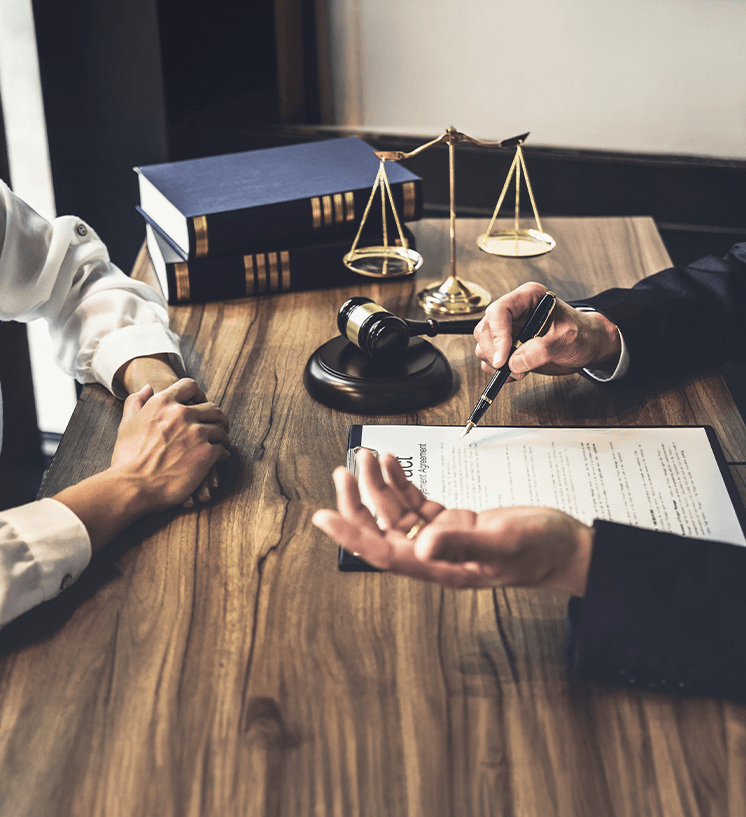

Dangerous Drugs

Baltimore Dangerous Drug Attorney
Holding Negligent Companies Liable for Defective Pharmaceutical Drugs
The development of pharmaceuticals has improved the lives of millions of people suffering from a range of health problems. However, not every new drug is safe for use. When a company commits negligence in the development of a drug, such as by failing to adequately test for adverse reactions, serious injury or death may occur.
If you or a loved one has been injured by a dangerous drug, you may qualify to file a product liability lawsuit to hold the negligent party accountable and recover compensation from them. At Brown & Barron, our Baltimore lawyers provide personalized, comprehensive legal representation to clients throughout Maryland. We have over 137 years of combined legal experience and have become known for maximizing our clients’ compensation.
Get in touch with a dangerous drug lawyer serving Baltimore, (410) 698-1717 for a free case evaluation.



Who Can File a Dangerous Drug Case?
Each year, thousands of Americans die as a result of adverse drug reactions. Sometimes, pharmaceutical companies attempt to cut corners when manufacturing or testing drugs. Sadly, this means that drugs may be rushed to the market without sufficient evidence of their safety and efficacy.
Pharmaceutical companies are legally obligated to test their drugs for any negative side effects, then warn the public and medical industry of these side effects. When a company fails to properly inform the public and the industry, those injured have grounds to hold the negligent company accountable for any damages.
Potential Compensation
A person injured by a dangerous drug can file a claim or lawsuit against the negligent drug company and recover damages.
Here are a few examples of the damages an injured person may be compensated for:
- Pain and suffering
- Medical expenses
- Missed time from work
- Lost wages
- Reduced future earning potential
Before the injured person recovers compensation, they must prove that their damages directly resulted from a dangerous drug. They must also prove negligence in the drug’s manufacturing. Our law firm’s lawyers know how to calculate compensatory damages and locate and uncover evidence to prove negligence.
Wrongful Death Damages in Baltimore
In Baltimore and the rest of Maryland, a family member can file a wrongful death claim or suit if their loved one died due to a dangerous drug. A spouse, a parent, or a child of the deceased family member can file the action as a primary beneficiary. If there aren’t any primary beneficiaries, secondary beneficiaries can file the wrongful death action and claim compensation instead.
Also, a beneficiary of the deceased person’s estate, like a spouse, can file a survival action on behalf of the deceased person. This action may allow the deceased person’s family to recover additional damages.
In your case, you may be able to claim the following damages:
- Loss of consortium and companionship
- Lost family income
- Funeral and burial costs
- Your loved one’s medical expenses before death
- Your loved one’s pain and suffering
Work With an Award-Winning Dangerous Drug Attorney
If you believe your illness or injury was caused by a dangerous drug, get in touch with us at Brown & Barron. Our Baltimore dangerous drug attorneys understand the devastating effects caused by unsafe prescription and OTC medications and have extensive experience in settling and litigating these cases.
Contact Brown & Barron online today to schedule a free case review with a with a dangerous drug lawyer serving Baltimore.
How a Baltimore Dangerous Drug Attorney on Our Team Will Help
Filing a claim or lawsuit can be challenging, and it can be even more difficult to negotiate with a drug company’s insurer or argue a case to a judge.
Instead of doing these things by yourself, you can let a dangerous drug attorney from our firm do them for you while you focus on your recovery.
They will take over your entire case, assuming these responsibilities and others:
- Researching the drug that harmed you and the studies and trials performed for it
- Compiling medical documents showing the side effects you or your loved one experienced
- Corroborating the evidence in your case with expert testimony, like a statement from a drug trial technician
- Filing your claim or lawsuit
- Communicating and negotiating with the insurance company
- Arguing your case to a judge and jury
- Fighting on your or your loved one’s behalf to hold the drug company accountable and help recover damages
Helping You Meet the Deadline for Your Dangerous Drug Case
If you’re considering filing a lawsuit for your case—whether it’s for product liability or wrongful death—you’ll have to meet the filing deadline. Your attorney can help you comply with it.
For a product liability suit, you generally have three years from the date of the incident or three years from the date of your discovery of symptoms to file, per Md. Cts. & Jud. Proc. § 5-101. For a wrongful death suit, you have three years from the date of the decedent’s death to file the suit, per Md. Cts. & Jud. Proc. § 3-904.
Our trial attorneys bring more than 137 years of combined experience and legal knowledge to fight for our clients and their families.
We offer a free initial consultation and work on a contingency fee basis, so you don’t have to pay a penny if we don’t recover compensation for you.
Reach out to us today for your free consultation and case review.


Hear from Our Clients
Over 150 5-Star Reviews from Our Past Clients
-
"Brown & Barron, LLC has to be one of the best law firms in the state of Maryland"
Brown & Barron, LLC has to be one of the best law firms in the state of Maryland, possibly the entire country. The quality of their service is second to none. They go above and beyond to serve their clients and get the job done.
- Eric B. -
"Exceeded All Expectations"
The best professional experience I have ever been a part of. I trusted them the entire way, and they exceeded all expectations.
- Darius L. -
"I would recommend Brown & Barron to anyone who needs a lawyer for a medical malpractice case."
Brown & Barron provided efficient, straight-up, and straightforward services in my medical malpractice case. They answered all my questions and kept me informed every step of the way.
- D.D. -
"Working with this law firm gave me confidence and comfort during an emotional and difficult time."
After a two-year process, my case is resolved. I would like to commend and highly recommend Mr. Chris Casciano for his diligence, attention to detail, and support for myself and my family.
- A.L.
-
 About Brown & Barron
About Brown & Barron![]()
-
 Experienced Legal Team
Experienced Legal Team![]()
-
 Focused on Your Recovery
Focused on Your Recovery![]()
-
 Committed to Your Rights
Committed to Your Rights![]()



